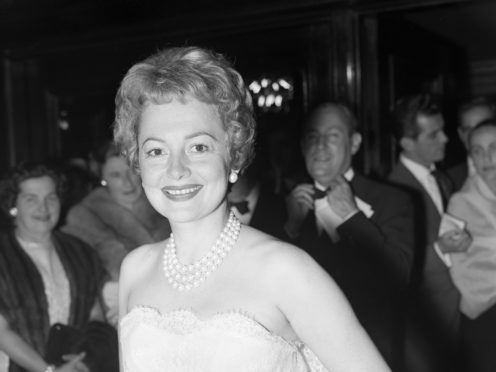Dame Olivia de Havilland’s lawsuit over her portrayal in Feud: Bette And Joan has been thrown out.
The 101-year-old double Oscar-winner sued FX Network over the docudrama, claiming it breached her right to privacy and defamed her by incorrectly portraying her as a gossip.
Dame Olivia claimed her portrayal by Catherine Zeta-Jones was inaccurate for showing her calling her sister Joan Fontaine a “bitch” and commenting on Frank Sinatra’s drinking habits.
But three judges in a California appeal court unanimously ordered the dismissal of the case on Monday and ruled Dame Olivia must pay FX’s legal fees and costs.
“Whether a person portrayed in one of these expressive works is a world-renowned film star – ‘a living legend’ – or a person no one knows, she or he does not own history,” judge Anne Egerton wrote.
“Nor does she or he have the legal right to control, dictate, approve, disapprove, or veto the creator’s portrayal of actual people.”
The show’s creator, Ryan Murphy, celebrated the decision as a “victory for the creative community”.
“Today’s victory gives all creators the breathing room necessary to continue to tell important historical stories inspired by true events,” he added.
“Most of all, it’s a great day for artistic expression and a reminder of how precious our freedom remains.”
Suzelle Smith, representing the Paris-based Gone With The Wind actress, criticised the “entirely pro-industry decision” and said they would appeal.
“The court of appeal, unlike the trial court, has taken on itself the role of both judge and jury, denying Miss de Havilland her constitutional rights to have a jury decide her claims to protect the property rights in her name or to defend
her reputation against knowing falsehoods,” she added.
The network last week appealed against an earlier decision not to dismiss the case, saying the docudrama genre can use creative licence to update her words for a “contemporary audience”.

FX lawyers argued the British-America movie veteran may not have called her sibling a bitch, but did call her a “dragon lady” in an interview on her 100th birthday.
Ms Smith, whose client is the only living major character in the show, told the court that dragon lady and bitch are not synonymous or equivalent in offensiveness.
“In my household, if you use the word bitch, you get your mouth washed out,” she said.

It was not the first time a major Hollywood company has been taken on by Dame Olivia, who won Oscars for 1946’s To Each His Own and 1949’s The Heiress.
She won a landmark victory over Warner Bros in 1943 which effectively ended actors’ contract servitude.

Dame Olivia had demanded damages from the network and for a permanent injunction preventing the show’s broadcast.
